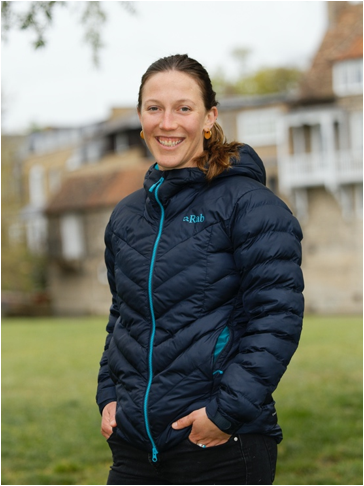Objectives
Abstract: Streptococcus pneumoniae is a globally endemic, human obligate bacteria, and a leading cause child mortality by pneumonia and meningitis worldwide. Despite the enormous public health burden, the extent and mechanisms of pneumococcal spread across spatial scales remains largely unknown. We analysed 6910 geolocated pneumococcal genome sequences from patients, collected from 2000-2014 in South Africa. We develop mechanistic phylogeographic models to reconstruct pathogen spread, incorporating the generation time distribution, human mobility data provided by Meta, population size, and underlying heterogeneities in sampling. We found that pairs from the same province had 2.43 [95%CI 2.02-3.17] times the relative risk of having a recent common ancestor (within 5 years) than distal pairs (>1000km apart). As the evolutionary time between isolates increases the relative probability of being from the same province decreases, however, it is only after around 50 years that the pneumococcus appeared to be well mixed throughout the country We were able to accurately recover this observed pattern of spatial-spread using our mechanistic model estimating that most transmission events were local (within municipality 87.6% [95%CI 80.2-88.7%]), with occasional long-distance transmissions. Our framework also showed the key role of travel to large cities in disease spread. We found that following an introduction, pneumococcus was 20 times more likely to have travelled to a major population hub (population >3-million) than elsewhere after one year of sequential person-to-person transmission. We incorporated a fitness effect model to estimate the impact of non-vaccine serotype expansion after vaccination. The pneumococcus spreads slowly across South Africa, driven by limited long-distance human mobility and the long generation time of pneumococcus. Our framework provides an opportunity to explore whether similar patterns of spread are observed elsewhere with differing mobility patterns, or whether vaccine introduction results in different patterns of spread across pneumococcal serotypes.
 Short Bio: Sophie Belman is a PhD candidate at the Wellcome Sanger Institute & University of Cambridge. She completed her MSc in Medical Microbiology at the London School of Hygiene and Tropical Medicine and her dissertation was working towards understanding the genomic drivers of drug resistance in dominant lineages of Mycobacterium tuberculosis in West Africa. She works with Wellcome Connecting Science to deliver advanced courses on pathogen genomic analysis and is passionate about generating a globally equitable research environment. Her current work is towards understanding the long-range transmission dynamics of the globally endemic pathogen Streptococcus pneumoniae. She is incorporating genomic and human mobility data, using a range of bioinformatic and epidemiological methods to further explore the impacts of vaccination and antimicrobial resistance.
Short Bio: Sophie Belman is a PhD candidate at the Wellcome Sanger Institute & University of Cambridge. She completed her MSc in Medical Microbiology at the London School of Hygiene and Tropical Medicine and her dissertation was working towards understanding the genomic drivers of drug resistance in dominant lineages of Mycobacterium tuberculosis in West Africa. She works with Wellcome Connecting Science to deliver advanced courses on pathogen genomic analysis and is passionate about generating a globally equitable research environment. Her current work is towards understanding the long-range transmission dynamics of the globally endemic pathogen Streptococcus pneumoniae. She is incorporating genomic and human mobility data, using a range of bioinformatic and epidemiological methods to further explore the impacts of vaccination and antimicrobial resistance.Speakers
Speaker: Sophie Belman, PhD candidate at the Wellcome Sanger Institute & University of Cambridge.
Host: Rachel Lowe, Global Health Resilience Leading Researcher, ES, BSC


